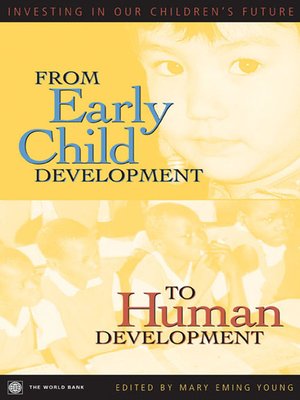From Early Child Development to Human Development
ebook ∣ Investing in Our Children's Future
By Mary Eming Young

Sign up to save your library
With an OverDrive account, you can save your favorite libraries for at-a-glance information about availability. Find out more about OverDrive accounts.
Find this title in Libby, the library reading app by OverDrive.



Search for a digital library with this title
Title found at these libraries:
| Library Name | Distance |
|---|---|
| Loading... |
It is never too early to become involved but it can easily be too late.' Armed with such alarming statistics as 125 million primary-school age children are not in school; another 150 million children drop out of primary school before they complete four years of education; and almost one-half of the children in the least developed countries of the world do not have access to primary education; the World Bank convened a global conference in April 2000, to address the benefits and challenges of investing in early childhood development. Scientific studies now show how critical the first few years of a child's life are in terms of later physical and mental health, behavior, and capacity to learn. The Millennium Development Goals endorsed by 189 member countries of the United Nations and the World Bank are targets for reducing global poverty. The goals specifically address the need for universal primary education as a means for breaking the cycle of poverty in individual families and in countries. With the publication of this volume, which contains the conference proceedings, the World Bank hopes to encourage a broader investment by countries, companies, organizations and private sector institutions in early child development Armed with such alarming statistics as 125 million primary-school age children are not in school; another 150 million children drop out of primary school before they complete four years of education; and almost one-half of the children in the least developed countries of the world do not have access to primary education; the World Bank convened a global conference in April 2000, to address the benefits and challenges of investing in early childhood development. Scientific studies now show how critical the first few years of a child's life are in terms of later physical and mental health, behavior, and capacity to learn. The Millennium Development Goals endorsed by 189 member countries of the United Nations and the World Bank are targets for reducing global poverty. The goals specifically address the need for universal primary education as a means for breaking the cycle of poverty in individual families and in countries. With the publication of this volume, which contains the conference proceedings, the World Bank hopes to encourage a broader investment by countries, companies, organizations and private sector institutions in early child development.







